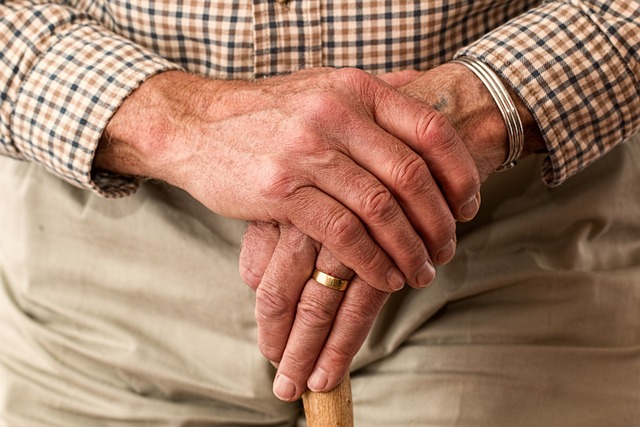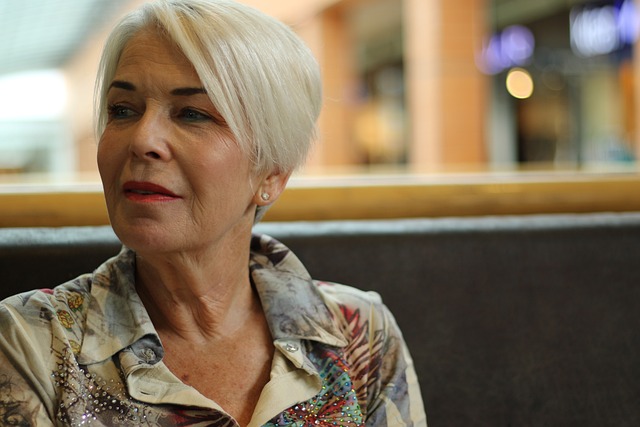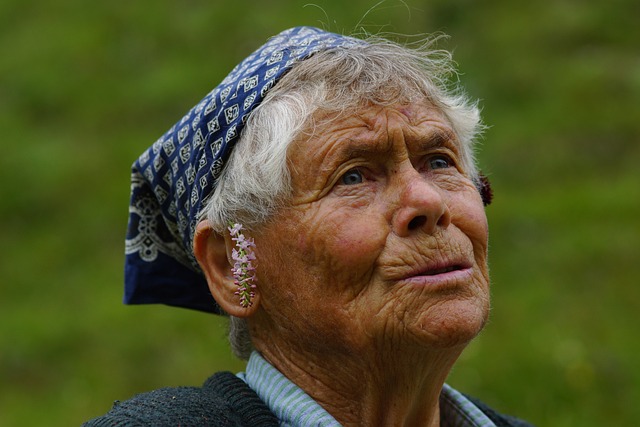Elderly Companion Services are designed to help seniors maintain independence at home by offering personalized companionship, assistance with daily tasks, and health monitoring through advanced technologies. These services aim to reduce loneliness and enhance safety and well-being, integrating real-time health tracking of vital signs, medication reminders, and activity levels. The use of sophisticated sensors, wearable devices, and AI algorithms facilitates early detection of potential health issues, ensuring prompt medical attention. Companions provide engaging activities to promote mental and physical stimulation, while respecting the seniors' dignity and autonomy. These services keep family members informed about their loved ones' well-being, offering reassurance and enabling seniors to age in place with comfort and dignity. With a focus on person-centered care, these Elderly Companion Services leverage technology for proactive health management and tailor care plans based on individual needs and preferences. They empower users with real-time health data access and a direct link to emergency services or family members, providing a heightened sense of security. These comprehensive home care solutions aim to support seniors' independence while ensuring their health is closely monitored for timely interventions, ultimately contributing to their overall quality of life.
In an era where technology and care intersect, elderly companion services stand at the forefront of in-home health monitoring assistance. These innovative services not only enhance lifestyle and wellbeing but also leverage advanced technology to ensure the health and safety of seniors. This article delves into the comprehensive support provided by these services, offering a detailed breakdown of their multifaceted role. Join us as we explore how elderly companion services are revolutionizing the way we approach elder care, making daily living safer, more comfortable, and imbued with a sense of companionship for individuals navigating the golden years.
- Enhancing Lifestyle and Wellbeing with Elderly Companion Services
- The Role of Advanced Technology in In-Home Health Monitoring
- Comprehensive Support Offered by Elderly Companion Services: A Breakdown
Enhancing Lifestyle and Wellbeing with Elderly Companion Services

Elderly companion services play a pivotal role in enhancing the lifestyle and wellbeing of seniors who prefer to reside in their own homes. These services provide a supportive presence, offering companionship that can alleviate feelings of loneliness and isolation often experienced by the elderly. By assisting with daily tasks and activities, these services enable seniors to maintain independence while ensuring their safety and well-being. The tailored support provided by companion caregivers allows for personalized interaction, which can be instrumental in fostering a sense of community and belonging. Additionally, these services often integrate health monitoring assistance, utilizing technology to track vital signs, medication adherence, and activity levels, thereby facilitating timely interventions and coordination with healthcare professionals when necessary. This proactive approach ensures that seniors receive the care they need in the comfort of their own homes, significantly enhancing their quality of life and promoting overall health and happiness.
Moreover, elderly companion services are adaptable to the evolving needs of individuals, offering a range of assistance from light housekeeping and meal preparation to companionship and engaging activities that stimulate both the mind and body. With a focus on person-centered care, these services respect the dignity and autonomy of seniors, empowering them to lead a more enriched life. The integration of technology within these services not only promotes safety and security but also keeps loved ones informed and connected, providing peace of mind for family members who may be concerned about their aging relatives living alone. Overall, companion services are an invaluable resource for seniors seeking to age in place with dignity and comfort.
The Role of Advanced Technology in In-Home Health Monitoring

Advanced technology has revolutionized in-home health monitoring, particularly for elderly companion services. Sophisticated sensors and wearable devices now provide real-time health data, enabling continuous tracking of an individual’s vitals. These technologies not only monitor heart rate, blood pressure, and oxygen saturation but also detect falls, changes in gait or behavior that could indicate a decline in health, and even predict potential health issues before they escalate. The integration of artificial intelligence (AI) algorithms allows for anomaly detection, alerting caregivers or medical professionals when intervention is necessary. This proactive approach to monitoring ensures that seniors receive timely assistance, reducing the risk of serious complications from chronic conditions or acute events. Moreover, these systems often come with two-way voice communication features, which facilitate direct interaction between the user and emergency responders or loved ones, providing a sense of security and companionship for the elderly. The convenience and reliability of these technologies mean that seniors can maintain their independence longer while also receiving the care they need within the comfort of their own homes. These services are designed to adapt to the individual’s lifestyle, offering peace of mind to both the user and their family members.
Comprehensive Support Offered by Elderly Companion Services: A Breakdown

Elderly companion services encompass a range of supportive care solutions designed to enhance the quality of life for seniors in the comfort of their own homes. These services offer tailored assistance to address the diverse needs of the elderly population, from those requiring minimal support to those needing more intensive care. A key aspect of these services is the provision of personalized care plans that consider each individual’s unique health conditions, preferences, and routines. This ensures that the support provided is both relevant and effective.
Companion services extend beyond basic monitoring to include daily living activities assistance, medication reminders, and regular health status checks. Trained caregivers offer companionship, which is a critical element for seniors who may be at risk of isolation. They also facilitate meaningful engagements that promote mental well-being and cognitive stimulation. Additionally, these services often integrate advanced technology, such as wearable devices and remote monitoring systems, to provide real-time health data to healthcare providers. This allows for proactive management of any health concerns, ensuring timely interventions when necessary. Through comprehensive support, elderly companion services aim to empower seniors to live independently with dignity while providing peace of mind to their families and loved ones.
In conclusion, elderly companion services represent a significant advancement in in-home health monitoring assistance, seamlessly integrating advanced technology to enhance the lifestyle and wellbeing of seniors. These services offer a multifaceted support system that goes beyond mere health monitoring, providing companionship, security, and a sense of independence for the aging population. With the insights provided in this article, it’s clear that these services are not just beneficial but indispensable for those seeking to maintain a high quality of life at home. As technology continues to evolve, so too will the capabilities of elderly companion services, ensuring they remain at the forefront of care for the elderly.




